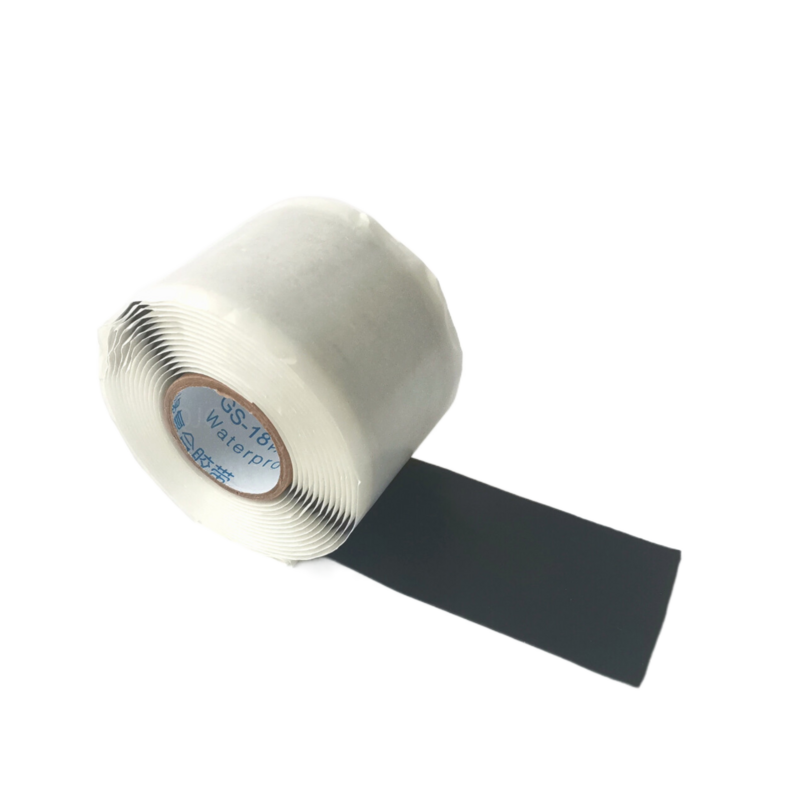Understanding Butyl Rubber Tape An Essential Tool for Various Applications
In the world of adhesive products, butyl rubber tape has emerged as a versatile and indispensable tool. Known for its unique properties and wide range of applications, this tape is used in many industries, from construction and automotive to electrical and HVAC. But what exactly is butyl rubber tape, and what makes it so effective? This article will delve into the features, benefits, and various applications of butyl rubber tape.
What is Butyl Rubber Tape?
Butyl rubber tape is made from a synthetic rubber compound known as butyl rubber. This material is famous for its excellent adhesive properties, flexibility, and resistance to environmental conditions. Typically, the tape is black and comes in various thicknesses and widths, allowing users to select the most suitable option for their specific needs.
Key Properties of Butyl Rubber Tape
1. Waterproof One of the most significant advantages of butyl rubber tape is its waterproof nature. The tape creates a robust seal that prevents water penetration, making it ideal for both indoor and outdoor applications.
2. Temperature Resistant Butyl rubber can withstand a wide range of temperatures, from extreme cold to high heat. This property makes it suitable for applications in different climates and environments.
3. UV Resistant Exposure to sunlight can degrade many adhesive products over time. However, butyl rubber tape is resistant to ultraviolet (UV) radiation, ensuring that it remains effective even in sunny conditions.
4. Excellent Adhesion Butyl rubber tape adheres well to various surfaces, including metal, glass, wood, and plastic. This versatility allows it to be used in a wide range of applications.
butyl rubber tape

Applications of Butyl Rubber Tape
The versatility of butyl rubber tape lends itself to numerous applications across various industries
1. Construction In the construction industry, butyl rubber tape is often used for sealing roof membranes, windows, and doors. Its waterproof properties make it an ideal choice for preventing leaks, ensuring the integrity and longevity of structures.
2. Automotive Butyl tape is commonly used in the automotive sector for sealing windshields and other glass components. Its ability to maintain a durable bond while providing insulation against moisture and vibrations is crucial for vehicle safety and performance.
3. Electrical In electrical applications, butyl rubber tape is used as insulation and sealing material for cables and wires. Its excellent adhesive characteristics ensure that electrical connections remain operational even in harsh conditions.
4. HVAC In heating, ventilation, and air conditioning (HVAC) systems, butyl rubber tape is used to seal joints and ductwork. By preventing air leaks, it contributes to greater energy efficiency and improved system performance.
5. Marine The marine industry benefits from butyl rubber tape due to its resistance to saltwater and UV radiation. It is commonly used for sealing joints in boats and yachts, protecting them from the damaging effects of the ocean.
Conclusion
Butyl rubber tape is a remarkable product that offers significant advantages across various industries. Its waterproof, temperature-resistant, and UV-resistant properties, combined with excellent adhesion and flexibility, make it an invaluable tool for countless applications. Whether in construction, automotive, electrical, HVAC, or marine settings, butyl rubber tape stands out as an effective solution for sealing and bonding needs. As the demand for reliable and durable adhesive products continues to grow, butyl rubber tape is likely to remain at the forefront of innovation, meeting the diverse requirements of users around the world.
-
XIANGFAN Rubber Tape-Ultimate Solutions for All Your Insulation NeedsNewsJun.24,2025
-
XIANGFAN Rubber Tape-Protection for Industrial and Residential ApplicationsNewsJun.24,2025
-
XIANGFAN Rubber Tape: Superior Safety and Sealing for Demanding EnvironmentsNewsJun.24,2025
-
XIANGFAN Rubber Tape: Reliable Solutions for Every Electrical ChallengeNewsJun.24,2025
-
XIANGFAN Electrical & Industrial Tape: Powering Reliability Across IndustriesNewsJun.24,2025
-
XIANGFAN Electrical & Industrial Tape: Excellence in Every ApplicationNewsJun.24,2025
